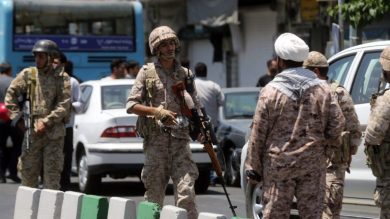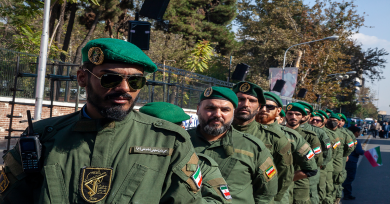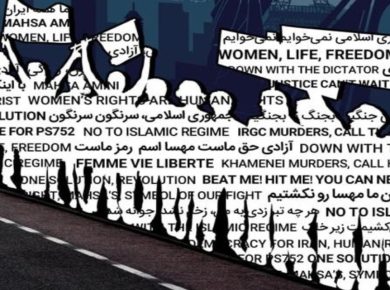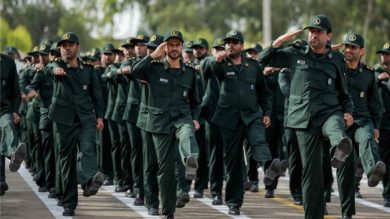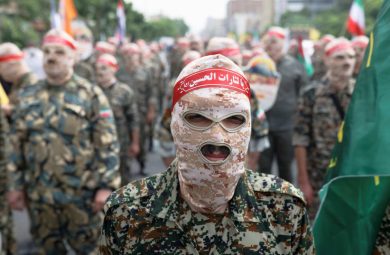While the streets of Iran roar with the voices of defiance, a powerful force echoes just as strongly across the globe: Iranian women in exile. Forced to leave their homeland due to political persecution, censorship, or threats to their lives, these women have transformed exile into empowerment. From New York to Paris, Berlin to Toronto, they are leading a global movement for justice, equality, and the liberation of the Iranian people.
Their activism takes many forms—journalism, digital campaigns, international advocacy, art, legal work, and public protest. Despite being miles away from home, these Voices in Exile remain deeply connected to Iran’s struggle. In many ways, they are the bridge between the oppressed inside Iran and the global community that must be mobilized to support them.
This update explores how Iranian women abroad are shaping the future of Iran’s freedom movement, the challenges they face, and why their role is vital in the ongoing revolution led by women.
1. Why Exile Happens: The Cost of Speaking Out
A. The Price of Dissent
Under the rule of the Islamic Republic, especially through the IRGC (Islamic Revolutionary Guard Corps) and intelligence services, Iran has created one of the most repressive environments for free speech in the world. Women who challenge the regime—by removing the hijab, writing about human rights, organizing protests, or working with international media—are often:
• Harassed or summoned for interrogation.
• Banned from work or education.
• Arrested, tortured, and imprisoned.
• Sentenced to years in jail on charges like “propaganda against the state.”
The only path to survival, for many, becomes leaving Iran. But for these women, leaving does not mean giving up the fight.
B. Exile as a New Frontline
Exile is not freedom in full—it brings grief, distance, and separation from family. Yet, many Iranian women have turned exile into a platform for louder resistance. Living in democracies, they can speak freely and reach audiences that their sisters inside Iran cannot.
They carry the stories of imprisoned friends, murdered protesters, and tortured activists, and amplify them on the world stage.
2. Leading from Abroad: Women Who Inspire the World
A. Masih Alinejad: Digital Dissident
One of the most recognized faces of Iranian activism abroad is Masih Alinejad, a journalist and women’s rights campaigner living in the United States. Masih founded the viral #MyStealthyFreedom campaign, encouraging women in Iran to share photos without hijab, directly challenging compulsory hijab laws.
Through social media, Masih:
• Exposes human rights violations in real-time.
• Shares testimonies from inside Iran.
• Educates international media and policymakers on IRGC brutality.
• Survives kidnap and assassination plots orchestrated by Iranian agents.
Her activism proves the power of the digital diaspora in bypassing state censorship and building global solidarity.
B. Shirin Ebadi: Legal Advocacy for Justice
Nobel Peace Prize laureate Shirin Ebadi, once Iran’s top female judge, has used her exile to advance international legal efforts against the regime. From London, she:
• Documents evidence of human rights abuses.
• Files international complaints against the Iranian government.
• Advocates for the rights of Iranian minorities, political prisoners, and women.
Her continued legal work has shaped the discourse around accountability, including the push to designate the IRGC as a terrorist organization.
C. Nazanin Boniadi: Bridging Art and Advocacy
Actress and activist Nazanin Boniadi uses her platform to blend culture with resistance. She has:
• Testified before the U.S. Congress and the UN Human Rights Council.
• Worked with Amnesty International and the U.S. State Department.
• Produced films and content that amplify the Iranian freedom movement.
She represents a generation of women using art and visibility as tools of diplomacy and awareness.
3. The Tools of Resistance Abroad
A. Media and Journalism
Iranian women abroad are:
• Founding independent news platforms like IranWire, Radio Zamaneh, and Manoto TV.
• Conducting investigative reporting on the IRGC’s global networks, corruption, and domestic brutality.
• Acting as trusted channels for those inside Iran to get their voices heard.
In a country where state media is a propaganda machine, diaspora journalism becomes essential to truth.
B. Digital Activism and Online Campaigns
Social media platforms like Twitter, Instagram, and Telegram are lifelines between exiles and those inside Iran.
Campaigns led by women abroad include:
• #MahsaAmini, used to mobilize global protests after her death.
• #FreeIranianWomen, highlighting political prisoners.
• #StopExecutionsInIran, which helped delay planned executions by bringing global attention.
These campaigns generate international pressure and ensure Iran stays in the headlines.
C. Policy and Lobbying
Iranian women abroad are engaging with:
• Parliaments, foreign ministries, and international bodies.
• The UN and human rights NGOs.
• Local governments to host exhibitions, organize protests, or pass resolutions supporting Iranian protesters.
They help shape policies like:
• Sanctions against IRGC leaders.
• Visa bans for human rights violators.
• Global recognition of the IRGC as a terror group.
4. Challenges Faced by Women in Exile
A. Surveillance and Threats
The Iranian regime, particularly the IRGC, runs international operations to monitor, intimidate, and even target activists abroad. Many women in exile:
• Receive death threats and online abuse.
• Have family members in Iran arrested or harassed as retaliation.
• Live under police protection after kidnap or assassination plots are uncovered.
Even outside Iran, the regime’s reach is long—but so is the determination to fight back.
B. Emotional Burdens and Isolation
Exile can be emotionally devastating. Many women:
• Are separated from parents, children, or partners indefinitely.
• Cannot return home for funerals or family events.
• Struggle with survivor’s guilt and burnout.
Yet they continue—because they believe their voices have the power to free those still inside.
C. Representation and Misuse of Their Voices
Some Iranian women activists abroad express frustration when:
• Their struggle is romanticized but not supported in concrete ways.
• Western media seeks their stories only in moments of crisis, then forgets them.
• Their political views are misrepresented or co-opted by foreign governments with agendas.
They emphasize the importance of authentic, independent representation, rooted in the voice of Iranian women themselves.
5. Their Impact: Tangible Results of Exile Activism
Iranian women in exile have played a direct role in:
• Freeing prisoners by raising awareness and pushing international campaigns.
• Preventing executions through diplomatic pressure and media attention.
• Passing resolutions in U.S., UK, and EU parliaments recognizing the Women, Life, Freedom movement.
• Protecting digital spaces by promoting VPN use and cyber literacy inside Iran.
They are not spectators—they are key players in Iran’s revolution, just operating from a different front.
6. The Road Ahead: A Movement Without Borders
A. Diaspora + Domestic = United Resistance
True change in Iran will come from inside the country. But it will succeed faster and stronger with a coordinated global movement, where exiles:
• Amplify stories from inside.
• Fund grassroots resistance and mutual aid.
• Shape international policies that empower the people and punish the oppressors.
This is a shared revolution—borderless, leaderless, and powered by women.
B. Building Platforms for the Next Generation
Women in exile are:
• Launching digital education projects to teach about feminism, human rights, and organizing.
• Supporting underground schools and women’s shelters in Iran through funding.
• Mentoring young Iranian women entering activism, journalism, and politics.
They are not just reacting to the present—they are investing in Iran’s democratic future.
Conclusion: A Movement That Cannot Be Silenced
Iranian women in exile have become lighthouses in the storm, guiding and illuminating a path for others—inside Iran and around the world. They carry the pain of exile, but also the power of freedom. Their voices are clear, strategic, and unrelenting.
Join Our Newsletter!
Stay informed with the latest updates, news, and ways to take action in the fight for justice and global security. Sign up now to get updates delivered straight to your inbox!

